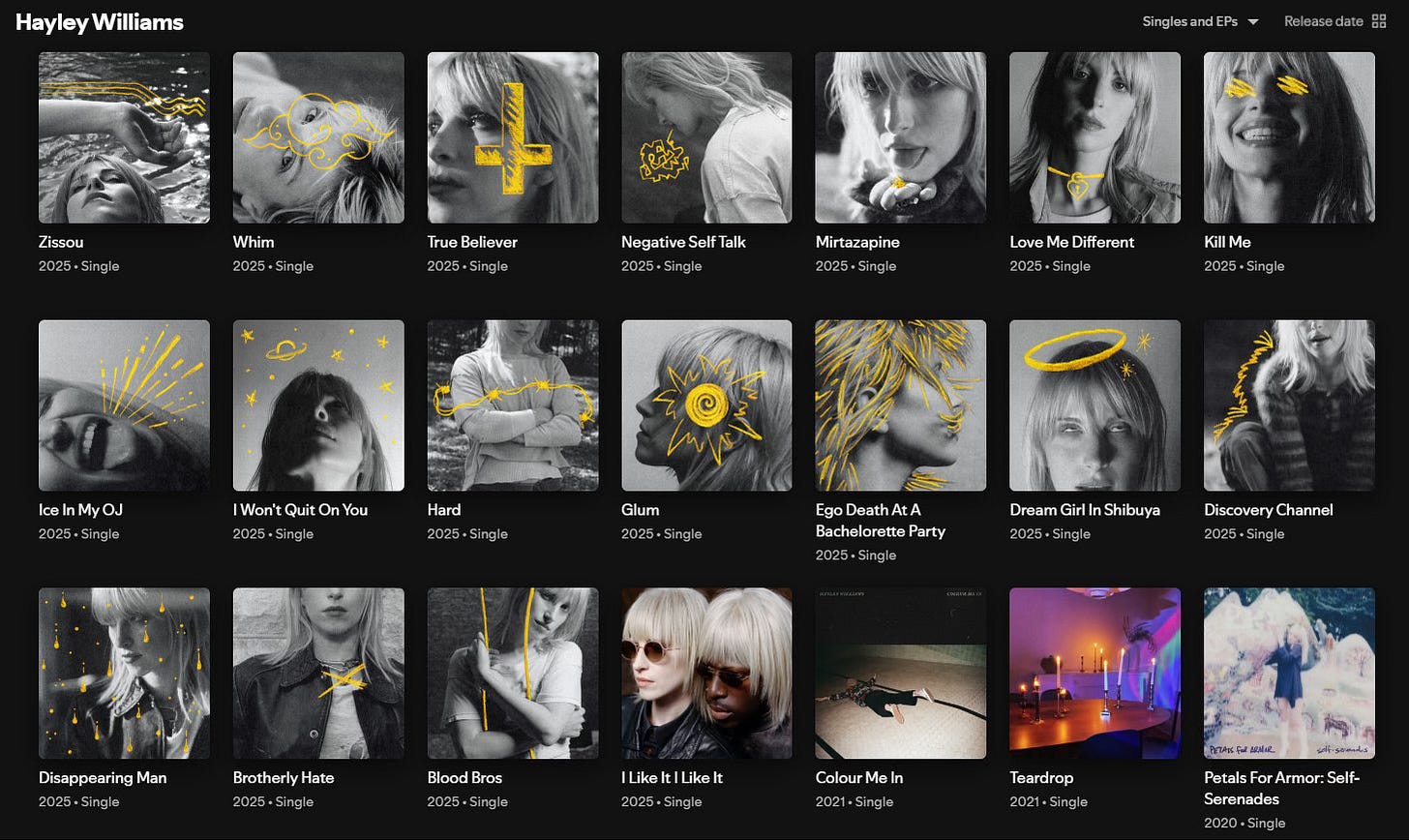17 Singles
Hayley Williams
One of popular music’s most talented vocalists is Paramore front-woman, Hayley Williams. The band first hit the charts when she was sixteen. Today, she is pushing thirty-seven and has just seen the end of Paramore’s historic twenty-year contract with Atlantic Records. To celebrate, she covertly released seventeen singles from her new label, Post Atlanti…




